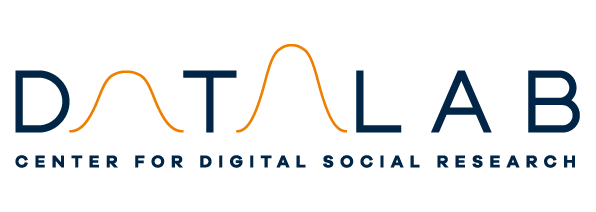New report on disinformation and democracy: A turn in the debate
The threat to democracy posed by disinformation has become a growing topic of interest within the recent years and was the focus of DATALAB’s research director Anja Bechmann’s stay as Thinker in Residence at KVAB.

The exposure to and spreading of disinformation through social media and traditional media can often lead to an amplification of stories. Especially, social media and the algorithmic curation often gets the blame for spreading polarizing content that can damage democracy. The question is what potential consequences this sharing behaviour has for the functioning of democracy. This was the overarching query in the latest report from the KVAB Thinkers programme published by the Royal Flemish Academy of Belgium for Science and the Arts. The Thinkers programme is an initiative created to investigate the influence of disinformation on democratic processes and to question why disinformation finds such popular foothold, when and in which types of media. The latest KVAB Thinkers’ report is a result of the work in the programme, where Professor of International Relations at University of London Ben O’Loughlin and DATALAB’s research director Anja Bechmann acted as Thinkers in 2019.
The aim of the report
In the report, Anja Bechmann and Ben O’Loughlin aim to establish the state of the academic knowledge about disinformation and democracy to identify what is important to pursue in future research. Ultimately, the authors identify and evaluate the policies and actions needed to address the current dilemmas that democratic societies face. The dilemmas related to disinformation and democracy involves multiple stakeholders, including policymakers, journalists, social media companies, and citizens, and the belief presented in the report is that these stakeholders need to unite to understand the complex phenomenon of disinformation.
The report is written with a focus on the social media in a European context and particularly minority language areas such as the Flemish region in Belgium. Flanders is an interesting case, because there is a high degree of trust in the mainstream media and the democratic institutions in general. The authors state this as an indication of a potential social fragility of the Belgian citizens. The findings in Flanders reflects how the social media both creates challenges and opportunities for the democratic countries’ diplomatic services.
A turn on three levels
Consequently, the authors argue for a turn in the disinformation debate on three different levels; 1) a conceptual turn, 2) a data access strategic turn, and 3) a combat strategic turn. Although the recent discourse around disinformation has taken a turn in becoming more inclusive, the report calls for a broader notion of disinformation disregarding the intentionality of causing public harm, as it is very difficult to determine whether something is intentional or not. The data access strategic turn concerns the implementation of a different method for platforms to provide data access to independent academic researchers, as lack of data will prevent knowledge production about disinformation. The combat strategic turn involves a turn in the strategies that are applied to counter disinformation. The authors argue for a stronger focus on monitoring, analysing and containing the amplification in the media and the circulation behaviour in digital ecosystems instead of only focusing on content and whether it is fake. The democratic discussion can become more productive with these interventions and a better attempt can be made to create collective conditions for media literacy.

